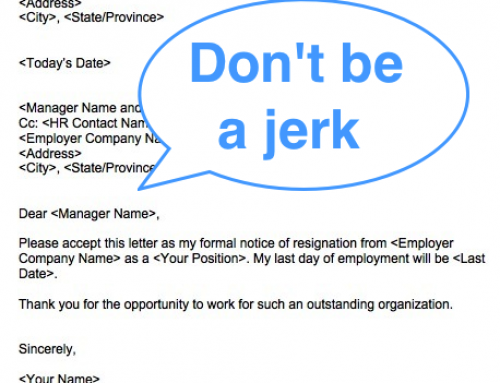| Job Perfection Series: |
|---|
|
This article is part of a five part series on finding your career calling and discovering the five paths to your perfect job. To start this series from the beginning, read the introduction.
Today I want you to stop hiding behind your humble self. Being sheepish about your skills is not a savvy path to job perfection. To find your true career calling you must tout your talents, sing your praises, and boast your brawn.
A key to finding your dream job is putting yourself in a role that plays to your strengths and promotes your passions. Spotting one’s strengths is not hard to do. I think we all have an intuitive sense of our strengths and weaknesses. The trick is to topple tact and quantify your qualifications.
There is no place for mild modesty in a cover letter or on your resume. Employers want to know quickly what skills and strengths you’re selling. If you shy away from sharing your strengths, your path to job perfection may be frustrating and uncertain.
To help you along the path to job perfection, try this simple method for spotting your skills and strengths:
Build a Skills Inventory: Worksheet
It’s time to tout your talents and be honest about your weaknesses by building a skills inventory. I’ve made this fun, so stop rolling your eyeballs. Just download the document called Spot Your Strengths: Skills Inventory Worksheet. This worksheet is ideal for helping job hunters and new graduates alike. Keep a copy of your answers in a folder or booklet for later.
Download Worksheet: skills_inventory_worksheet.pdf
Four Points to Ponder
Before itemizing your skills inventory, be sure to ponder the following four points. Keeping these points in mind can help you spot your strengths.
1. Go beyond the obvious: One key to accessing your strengths is to see beyond the functional roles performed by your job title. Indeed, a teacher tends to teach, a marketer markets stuff, and a manager often manages things. Get past job functions and look at your transferable skills sets. Some marketable skills sets include:
- Communication: The ability to express and interpret ideas and convey knowledge. Skills like speaking effectively, writing concisely, listening attentively, expressing ideas, reporting information, editing, interviewing, and facilitating group discussion.
- Research and Planning: The ability to search for specific knowledge and formulate a program for a definite course of action. Skills like forecasting, predicting, identifying issues, finding alternatives, gathering information, solving problems, setting goals, extracting information, and developing strategies.
- Human Relations: The ability to apply interpersonal skills to resolve conflict, relate to people, and help people. Skills like providing support for others, listening, delegating with respect, representing others, asserting, developing rapport, and perceiving feelings.
- Management, Organization, Leadership: The ability to supervise others and guide individuals and groups towards the completion of tasks. Skills like managing groups, selling ideas, making decisions, managing conflict, coordinating tasks, teaching, enlisting help.
2. List specific skills: Avoid generalizations and be specific about your skills. Try to list transferable skills which can be broadly applied across a number of fields. For example, “excellent communicator” is general, while “writes concise instruction manuals” is more specific.
3. Be brutally honest: We all can’t be good at everything. Ok, if you’re good at everything then please, stop reading. But if you’re like me, then you have some weaknesses which should be listed. For example, I am a terrible public speaker. I break into cold sweats whenever I face a crowd. I usually prefer avoiding roles where public speaking is of paramount importance. If you have some weaknesses, be sure to list them.
4. Consider hobbies, pastimes, and sports: Go beyond past careers and courses and consider all your hobbies, pastimes, and sports. There’s huge value in translating your strengths from your favorite activities to your career calling. Expand your skills inventory to include the wicked things you do on the weekends.
Itemizing Your Skills Inventory
With your worksheet in one hand and your Four Points to Ponder in the other, it’s time to itemize your skills inventory. This is not an easy task. I find listing my accomplishments, strengths, and weakness very challenging. Just throw away your humble nature and really be honest when listing your weaknesses and be tenacious by tallying your talents.
1. Start by making a chronological list of all the jobs you’ve held since the beginning of your career. Go ahead and list some of your pastimes and hobbies too. If you are a new graduate student, then list all pertinent courses, projects, cooperative education experiences, and awards. Don’t be afraid to list both your stellar subjects and the courses you cursed. Remember, there is value in knowing what you are good at and where your weakness lies.
3. Next to each job, hobby, or course make a note of the things you did well, and not so well. In the “Strengths” column, list your best skills. In the “Weakness” column, list what didn’t go so well in this position, course, or hobby.
4. For each position, note what you believe was your most important accomplishment. Did you win a new customer, solve a problem, or sell above quota? Be thoughtful about this and try to go beyond the obvious. For new graduates, mention if you won a scholarship, aced an exam, or finished at the top of your class.
5. Review all your responses and be sure you followed the Four Points to Ponder by going beyond the obvious, listing only specific skills, considering pastimes, and being brutally honest.
After filling in a few columns you may see patterns and themes emerging from the strengths and weakness throughout your career or coursework. When I’ve completed this exercise I’ve found surprising consistency over time. Being brutally honest really helps.
Build a Book
Be sure to add your Skills Inventory Worksheet to the scrapbook you started in Five Ways To Find Your Passion. This book is the best tool for finding a new career or landing the perfect job as it’s all about what makes you unique. You will need this book over the next few days as we continue to build on your career calling.
Stay tuned tomorrow for the next installment of Your Career is Calling: Five Paths to Job Perfection.






Nice articles, I especially like the pdf worksheets. Definitely subscribing to see what’s coming next.
You can tell I’m truly reading your site, because I found a typo on this page.
“Bulid a Book” should probably be “Build a Book.”
Sorry about that, but I thought you would want to know.
Great site. I’m editing a resume for a friend. Good stuff.
@Craig Typo fixed! Thank you for letting me know. 😉 Enjoy!
Thank you very much for posting this incredibly useful tool and making it available for anyone to benefit from!
Nice informative articles. I fell in love with these career articles and am suggesting my friends to read em’. At one stage or the other, people have to do this introspection to understand themselves better and what they want to achieve..It will be very very helpful if you could put one example for a new graduates…since there will be not many accomplishments in the courses they do. (Same is with me)…